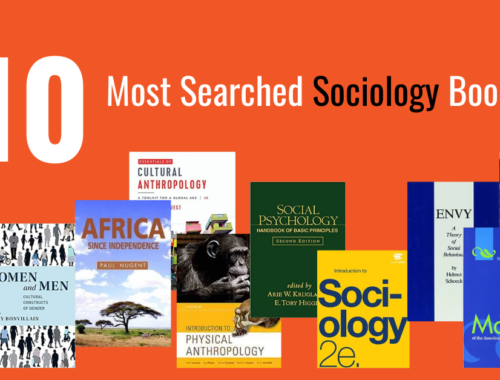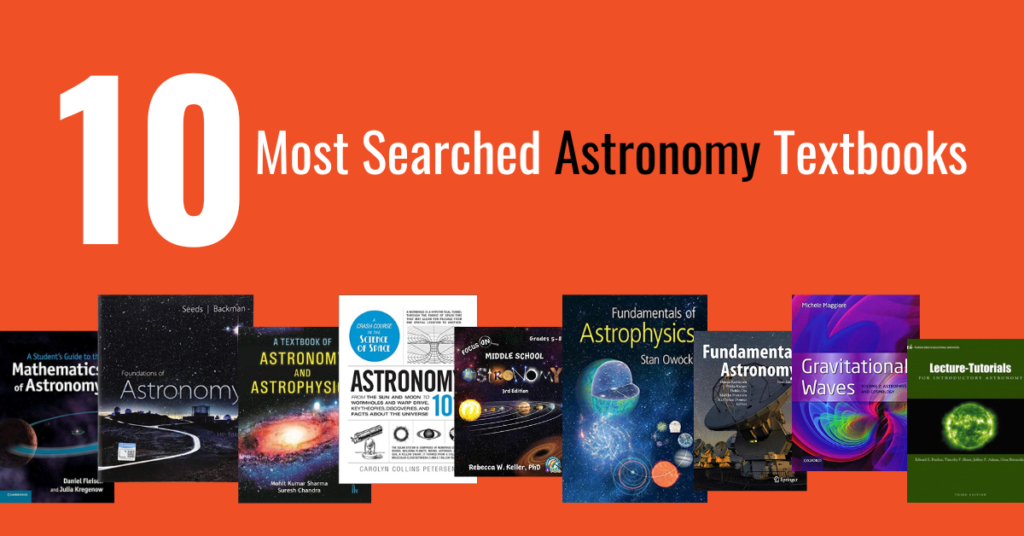
Astronomy is the most expansive scientific field out there. From studying the planetary systems within our galaxy – The Milky Way – to exploring the galaxies beyond our own, astronomy is a constant reminder that our world is far smaller than we would like to believe. Not to mention that exceptional progress we have made in creating the kind of technology, such as high performing telescopes and rovers, that helps learn far more than we ever have about the world and universe. Though the sheer scope of it may be incredibly intimidating, many high-quality textbooks and education resources are designed to make the most challenging concepts of astronomy more accessible to novice and young readers.
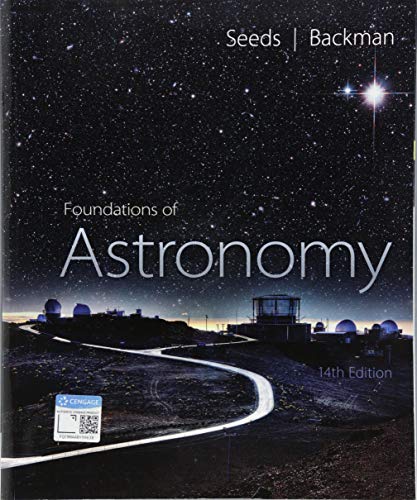 Foundations of Astronomy 14th Edition
Foundations of Astronomy 14th Edition
by Michael Seeds and Dana Backman
Foundations of astronomy immerses its reader in the detailed foundational aspects of astronomy. Authors Seeds and Backman, invite readers to look to the skies and ask ourselves some crucial, metaphysical questions: What are we and how do we know what we are? It covers a depth of content while remaining accessible and reader friendly.
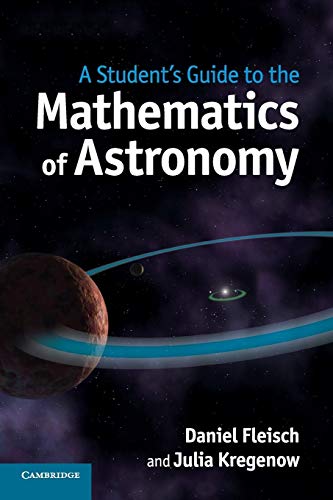 A Student’s Guide to the Mathematics of Astronomy (Student’s Guides) 1st Edition
A Student’s Guide to the Mathematics of Astronomy (Student’s Guides) 1st Edition
by Daniel Fleisch and Julia Kregenow
If you’re not scientifically minded but are in awe of astronomical sciences, this textbook is for you. This textbook is brimming with exceptional content on our solar system, galaxy and known universe. A Student’s Guide to the Mathematics of Astronomy features multiple exercises and even an accompanying website to further explore topics in astronomy.
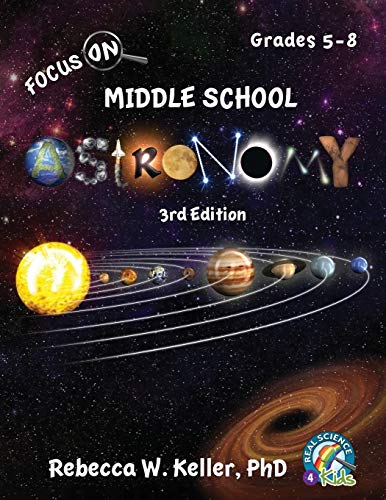 Focus On Middle School Astronomy Student Textbook 3rd Edition
Focus On Middle School Astronomy Student Textbook 3rd Edition
Astronomy is for all ages and Rebecca Keller has put together a stellar textbook for middle school astronomy enthusiasts. In addition to learning about the history of astronomy, students will also learn about space probes, telescopes, asteroids, the solar system and much more. It is a treasure trove of information for young minds.
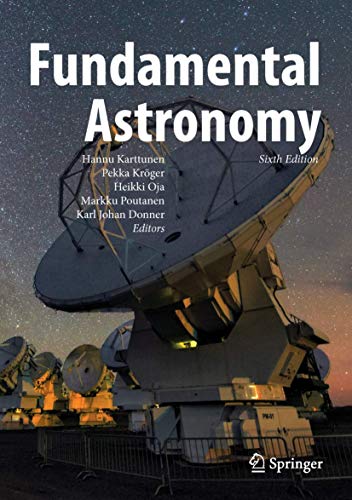 Fundamental Astronomy 6th ed.
Fundamental Astronomy 6th ed.
Fundamental Astronomy balances theoretical concepts of astronomy with their basic physical principles. In addition to the fundamental theories, this textbook also contains additional sections on modern concepts including extrasolar planets and astrobiology.
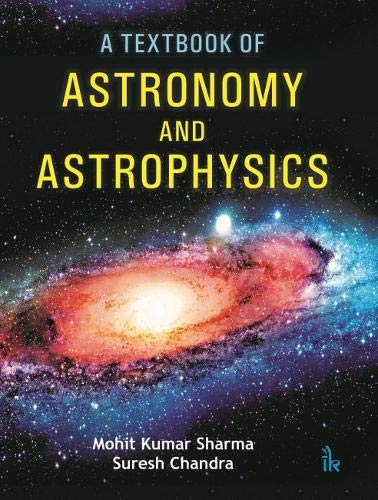 A Textbook of Astronomy and Astrophysics
A Textbook of Astronomy and Astrophysics
This textbook is intense. Though it certainly isn’t catered to beginners, for those who have already explored the fundamentals of astronomy and astrophysics, Sharma’s A Textbook of Astronomy and Astrophysics expands on these concepts to give readers a far more in-depth understanding of the ever-expanding universe before us.
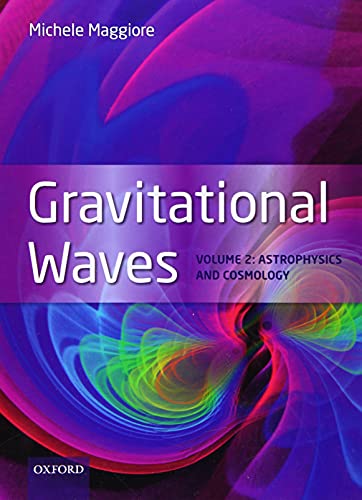 Gravitational Waves: Volume 2: Astrophysics and Cosmology
Gravitational Waves: Volume 2: Astrophysics and Cosmology
The first direct detection of gravitational waves happened less than 10 years ago, in 2015. Since then, this field of study has grown exponentially, and this textbook explores the theory behind it and discusses what we can learn from gravitational waves in astrophysics.
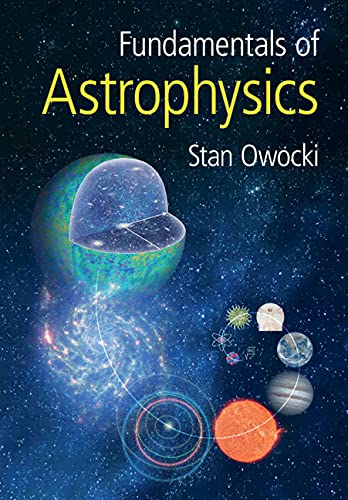 Fundamentals of Astrophysics 1st Edition
Fundamentals of Astrophysics 1st Edition
by Barbara Ryden and Bradley Peterson
Ryden and Peterson have compiled a comprehensive introduction to astrophysics for astronomy and physics majors. Fundamentals of Astrophysics also contains numerous problems for students to work through to enhance their comprehension of key theories.
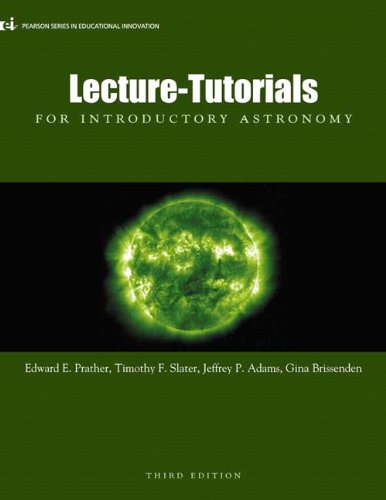 Lecture-Tutorials for Introductory Astronomy, 3rd Edition
Lecture-Tutorials for Introductory Astronomy, 3rd Edition
This is the best astronomy adult activity book. It includes 44 collaborative activities that often appear in introductory astronomy classes. Students can benefit from extensive resources and in-depth explanations.
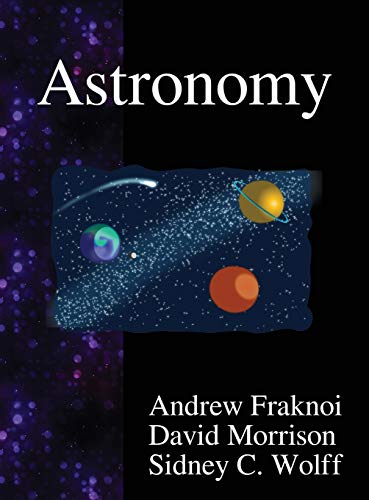 Astronomy
Astronomy
by Andrew Fraknoi, David Morrison, Sidney C. Wolff
Simply put, Astronomy is one of the best textbooks for introductory level astronomy courses. Authors use simple language to contextualise some of the fascinating scientific discoveries and theories in the field of astronomy. Astronomy is made accessible worldwide and has a whopping thirty chapters covering everything from celestial distances to Black Holes and curved spacetime.
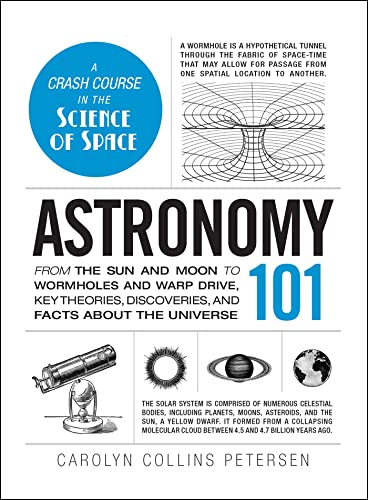 Astronomy 101: From the Sun and Moon to Wormholes and Warp Drive, Key Theories, Discoveries, and Facts about the Universe
Astronomy 101: From the Sun and Moon to Wormholes and Warp Drive, Key Theories, Discoveries, and Facts about the Universe
Forget the boring details, Astronomy 101 cuts to the chase and brings astronomy to life with engaging lessons and fascinating information about what lays beyond the night sky. Astronomy 101 is accessible to everyone no matter their knowledge level.
There you have it, the most searched astronomy textbooks. If you’re looking to get your hands on textbooks for next semester, check out BookScouter. All you need to do to save on the cost of textbooks is to enter a book’s ISBN on the website and have access to all current offers available to buy or rent the book you’re searching for from 20+ online booksellers. Discover the universe’s most fascinating secrets with the help of BookScouter price comparison engine.



